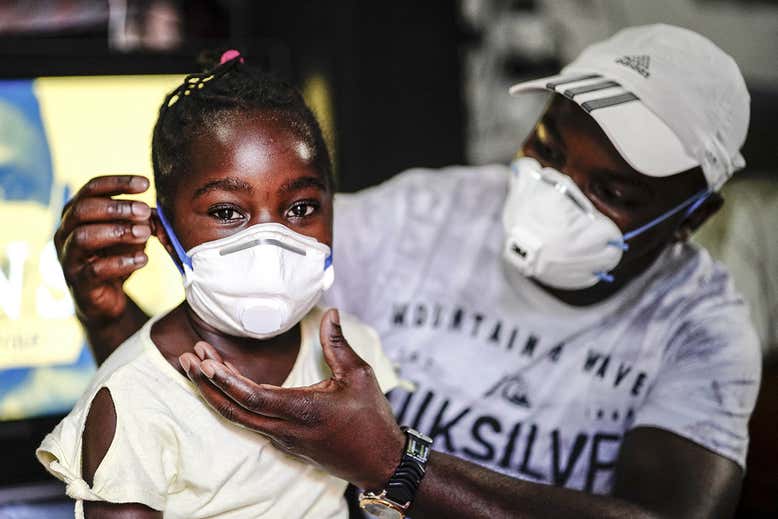

Coronavirus cases across Africa have continued to occur at much lower levels than on other continents. After many African countries took quick action to stop the virus spreading, attention is now turning to what will happen as several nations begin easing lockdown restrictions in one of the world’s most vulnerable regions.
South Africa has some of the continent’s most stringent coronavirus measures, including a ban on cigarette and alcohol sales and a lockdown that only allows people out to get food or medicine. Its government is taking a very gradual approach to relaxing these restrictions. Ghana is at the other end of the spectrum: against expectations, lockdown was lifted in the capital of Accra and the city of Kumasi after only three weeks.
“In balancing lives and livelihoods, [African] countries are now looking at easing restrictions. In doing so, we are encouraging countries to adjust measures slowly and in line with the evidence,” Matshidiso Moeti at the World Health Organization told a virtual meeting held by the World Economic Forum on 30 April.
Ghana’s first covid-19 cases were reported on 12 March, and the epidemic has centred on Accra and Kumasi. Before lockdown was imposed on Accra at the end of March, a grace period enabled people to leave the city. A “sizeable number” carrying the virus left for other parts of the country, according to epidemiologist Kojo Ansah Koram, the former director of the Noguchi Memorial Institute for Medical Research in Ghana.
With the lockdown now lifted, Ghana is continuing to test and trace cases as much as possible – more than 100,000 people have been tested so far. Physical distancing and mask wearing are encouraged. Koram told the meeting that economic voices had won out over scientific advice. While many expected a further three weeks of lockdown, the government had to take into account the large number of people in informal jobs who need to work each day to earn a living.
Modelling by Francesco Checchi at the London School of Hygiene and Tropical Medicine and his colleagues suggests that short lockdowns in African countries can only have “marginal effects”, whereas two-month lockdowns could gain nations an extra three months to prepare and mobilise resources.
For now, it is too early to say what effects Ghana’s relaxing of its restrictions have had on the virus transmission rate, says Wafaa El-Sadr at Columbia University in New York. South Africa, however, has “responded vigorously” to covid-19, she says, adding that this “highlights the importance of political leadership and will”.
South Africa’s health minister, Zweli Mkhize, told the meeting that the country has run a “whole nation campaign” led by president Cyril Ramaphosa. The country had its first covid-19 case on 5 March and has tested more than 200,000 people. Although 1.5 million people in certain sectors were allowed back to work on 1 May, the initial three-week lockdown has been extended.
The plan now is for testing and tracing, with the aim of relaxing the lockdown in a phased way at a regional level. Mkhize said the two major issues in making decisions on lockdowns will be the rate of coronavirus transmission, which is still high in cities and towns, and healthcare capacity in those areas.
“Clearly, South Africa has a much more advanced health system and could potentially rely on an exit strategy that mixes distancing with extensive testing and contact tracing plus scaling up of hospitalisation capacity,” says Checchi.
Ultimately, lockdowns are tough for vulnerable people in both South Africa and Ghana, says El-Sadr, and governments must look to provide food packages and income support. “If this does not happen, many will suffer and it will compel people to break lockdown measures in order to survive,” she says.